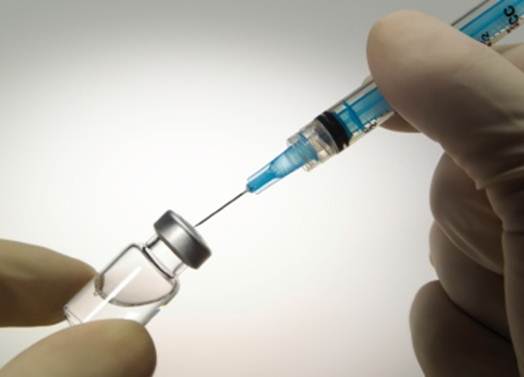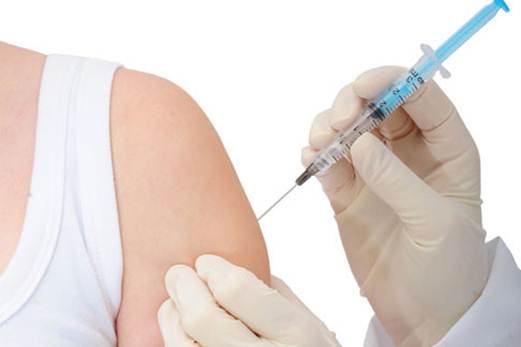A few good shots
Cervical Cancer is caused by the human
papilloma virus which is transmitted during sexual intercourse, and is the most
common cancer in Indian women. The vaccine Cervarix protects against cervical
and anal diseases and is given in 3 doses with an interval of 2 and 6 months.
It is a must for all you women, even if they have been celibate, because you
get the infection from the male, and you may never know where he’s been.

Cervical
Cancer is caused by the human papilloma virus which is transmitted during
sexual intercourse, and is the most common cancer in Indian women.
Chicken Pox (Varicella) is part of the
routine vaccination schedule recommended for babies. Since the vaccine is
relatively new, adults who have never had it may want to consider it, specially
if they work in schools or pediatric wards. The infection tends to be more
serious in adult, with high fever and larger blisters.
The vaccine does not completely prevent
chicken pox, but vaccinated people who do get the disease get milder symptoms.
It is also likely that the (chicken pox) vaccine prevents herpes zoster
(shingles) a complication of chicken pox that can produce painful skin sores
along the nerves later.
The vaccine is administered in two doses 4
to 8 weeks apart. It is not given to pregnant women, people with a weak immune
system or people with cancer of the bone marrow or lymphatic system. Cholera is
a very serious gastrointestinal infection causing severe diarrhoea which leads
to life threatening and rapid dehydration, caused by a bacteria.

The
infection tends to be more serious in adult, with high fever and larger
blisters.
A single dose vaccine can be given if there
is an outbreak, although the effect lasts for only a few months. Hepatitis A is
a food based infection which affects the liver and is marked by jaundice
(yellowing) and pain. Male homosexuals, drug users, people with chronic liver
disease or blood clotting disorders should have active immunization —2 doses 6
to 12 months apart. Lasts for 25 years in adults. During an outbreak you can be
protected through an injection of serum globulin. Hepatitis B is spread by
blood or body fluids. You are at high risk if you are a health care worker, mortuary
worker, receive frequent blood transfusions or dialysis, inject drugs, have
multiple sex partners.
Immunization is given ma series of 3 or 4
injections. However if you have been vaccinated and exposed to the virus, your
antibody levels against Hepatitis B are measured. If the antibody levels are
low, you may need another shot. If you have a severe allergic reaction to
baker’s yeast, which is used in the production of the vaccine, you cannot
receive it.
If you have been exposed to the virus, say
with an accidental needle puncture, an injection of hyper immune serum globulin
will offer some protection. Influenza or flu, marked by diarrhoea, nausea,
fever, and vomiting can lead to pneumonia. So immunization is recommended for
those over 50, residents of old age homes, people with chronic heart on lung
disease, diabetes, kidney failure, sickle cell disease, a weakened immune
system.
The flu shot is usually given in autumn as
the winter months are when influenza tends to occur because people spend more
time in close contact with one another.
It needs to be repeated every year.
Measles, Mumps Rubella (German Measles) are all viral infections. If you were
born after 1956, have never had one of these infections and have not received
two doses of the vaccine - you should be vaccinated. Specially vulnerable are
those beginning college, working in schools and child care centres.

Pregnant
women and those who are allergic to eggs or the antibiotic neomycin should not
be vaccinated.
Pregnant women and those who are allergic
to eggs or the antibiotic neomycin should not be vaccinated. You can receive
individual vaccines against measles, mumps or rubella. However it makes sense
to have a combination vaccine, killing three birds with two shots, so to speak.
Anyone who needs protection against one of these infections, usually needs
protection against the other two.